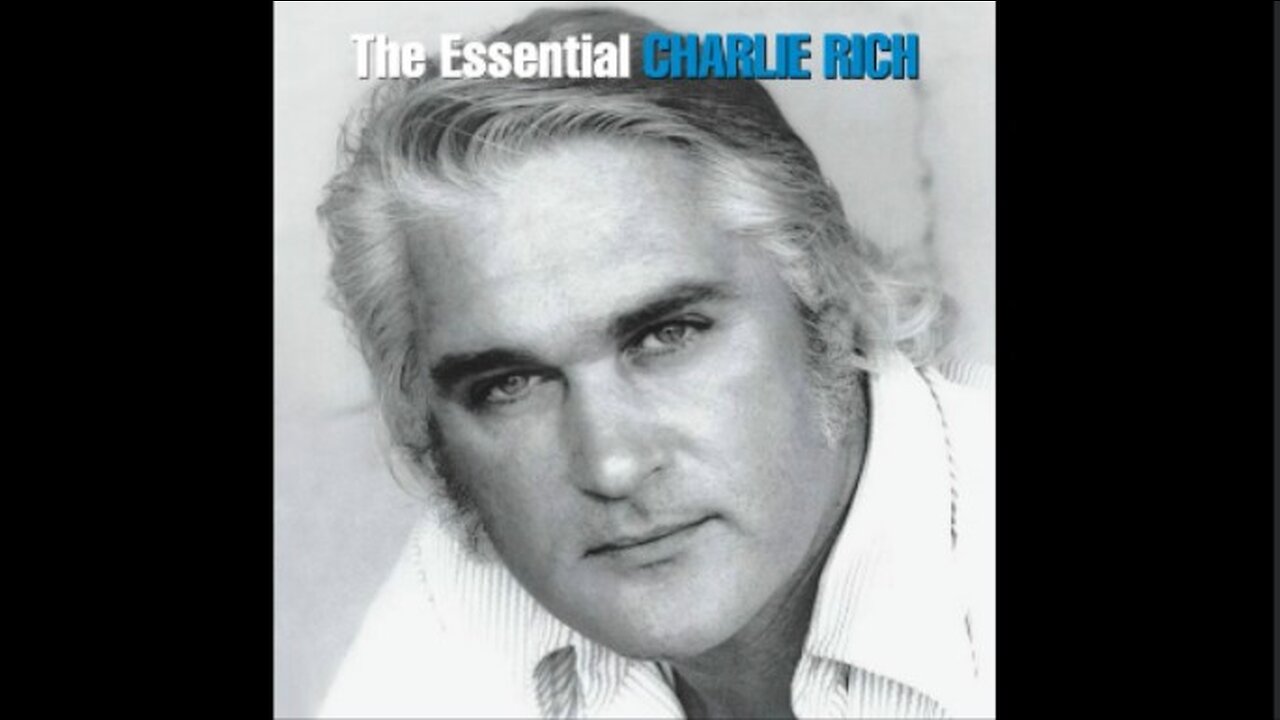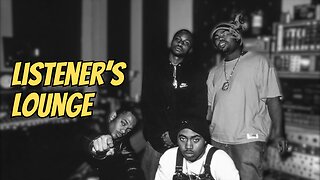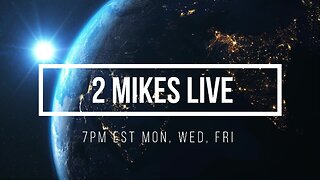Premium Only Content

Charley Rich with "I Feel Like Going Home" (with lyrics)
Charles Allan Rich (December 14, 1932 – July 25, 1995) was an American country singer. His eclectic style of music also blended influences from rockabilly, jazz, blues, soul, and gospel.
In the later part of his life, Rich acquired the nickname the Silver Fox. He is perhaps best remembered for a pair of 1973 hits, "Behind Closed Doors" and "The Most Beautiful Girl," which topped the U.S. country singles charts as well as the Billboard Hot 100 pop singles charts and earned him two Grammy Awards. Rich was inducted into the Memphis Music Hall of Fame in 2015. In 2023, Rolling Stone ranked Rich at number 120 on its list of the 200 Greatest Singers of All Time.
Early life
Rich was born in Colt, Arkansas, to rural cotton farmers. He graduated from Consolidated High School in Forrest City, where he played saxophone in the band. He was strongly influenced by his parents, who were members of the Landmark Missionary Baptist Church; his mother, Helen Rich, played piano in church and his father sang in gospel quartets. A black sharecropper on the family land named C. J. Allen taught Rich blues piano. He enrolled at Arkansas State College on a football scholarship and then after an injury, transferred to the University of Arkansas as a music major. He left after one semester to join the United States Air Force in 1953.
He married Margaret Ann Greene in 1952. While stationed in Enid, Oklahoma, he formed "the Velvetones", playing jazz and blues and featuring his wife on vocals. When he left the military in 1956, the couple returned to the West Memphis area to farm 500 acres. He also began performing in clubs around the Memphis area, playing both jazz and R&B, and began writing his own material.
Career
After recording some demonstration songs for Sam Phillips at Sun Records that Phillips considered "too jazzy" and insufficiently commercial, Rich was given a stack of Jerry Lee Lewis records and told: "Come back when you get that bad."[3] In a 1992 interview with Fresh Air host Terry Gross, Rich himself recalled Bill Justis telling Rich's wife those words.
In 1958, Rich became a regular session musician for Sun Records, playing on a variety of records by Lewis, Johnny Cash, Bill Justis, Warren Smith, Billy Lee Riley, Carl Mann, and Ray Smith.[3] He also wrote several songs for Lewis, Cash, and others.
After he began recording for the Sun subsidiary Phillips International Records, his third single was the 1960 Top 30 hit "Lonely Weekends", with Presley-like vocals. It sold more than one million copies and was awarded a gold disc by the Recording Industry Association of America. None of his seven follow-up singles was a success, however, though several of the songs became staples in his live set, including "Who Will the Next Fool Be", "Sittin' and Thinkin'", and "No Headstone on My Grave". These songs were often recorded by others to varying degrees of success, such as the Bobby Bland version of "Who Will the Next Fool Be".
"Rich's jazzy chops and heartfelt polish transform Nashville's best chicken fat into high-quality mainstream pop—Arkansas's answer to Nat Cole. Cole was better at it, but I prefer Rich's homely subject matter and rock and roll roots."
–Christgau's Record Guide: Rock Albums of the Seventies (1981)
Rich's career then stalled and he left the struggling Sun label in 1963, signing with Groove, a subsidiary of RCA Victor. His first single for Groove, "Big Boss Man", was a minor hit, but once again, his Chet Atkins-produced follow-up records all failed. In 1965 he moved to Smash Records, where his new producer, Jerry Kennedy, encouraged him to emphasize his country and rock n' roll leanings, although Rich considered himself a jazz pianist and had not paid much attention to country music since childhood. His first single for Smash was "Mohair Sam", an R&B-inflected novelty-rock number written by Dallas Frazier, which became a top 30 pop hit. It has been mentioned in thousands of articles as the song Elvis Presley played on his jukebox during the Beatles' visit to his home on August 26, 1965. However, once more none of his follow-up singles were successful. Rich again changed labels, moving to Hi Records, where he recorded blue-eyed soul music and straight country, but once more, none of his singles for Hi made a dent on the country or pop charts. One Hi Records track, "Love Is After Me" (1966), belatedly became a white soul favorite in the early 1970s.
For More information about Charley Rich, please go to his Wikipedia page at https://en.wikipedia.org/wiki/Charlie_Rich
-
 LIVE
LIVE
Drew Hernandez
11 hours agoTRUMP RALLY WI, CNN LIES & MARK CUBAN NUKES KAMALA
1,858 watching -
 1:53:28
1:53:28
Glenn Greenwald
7 hours agoMedia Fabricates Trump’s Call For Liz Cheney’s Execution; Slate Writer Demands Usha Leave JD; Darren Beattie On 2024 & Pakistan | SYSTEM UPDATE #361
87.9K39 -
 1:12:53
1:12:53
Havoc
8 hours agoListener's Lounge - The Chat Takeover
42.1K1 -
 LIVE
LIVE
Tundra Gaming Live
9 hours ago $4.46 earnedOne More Day Of Zombies Then Back To Warthunder
612 watching -
 6:43:15
6:43:15
Right Side Broadcasting Network
2 days agoLIVE: President Trump Delivers Remarks at a Rally in Warren, MI - 11/1/24
295K26 -
 36:53
36:53
Stephen Gardner
6 hours ago🔥Col. Douglas Macgregor: Kamala's inexperience is DANGEROUS | Israel & Ukraine NEED Trump!
55.1K99 -
 4:49:22
4:49:22
Nerdrotic
9 hours ago $43.60 earnedWoke Hollywood Collapse, Agatha Farts in the Wind - Friday Night Tights 326 w/ Baggage Claim, Savvy
102K5 -
 1:46:14
1:46:14
2 MIKES LIVE
6 hours ago2 MIKES LIVE #137 with Special Guests KEVIN SHIPP, KENT HECKENLIVEY and JOHN MIRRIONE!
33.6K3 -
 1:18:31
1:18:31
Sarah Westall
8 hours agoRemote Viewers on Antarctica, Hive Mind & Our Future w/ Allgire, Riordan, Smith
29.1K3 -
 5:41:28
5:41:28
LFA TV
10 hours agoTRUMP RALLY LIVE IN MILWAUKEE, WISCONSIN 6PM EST
60.4K2